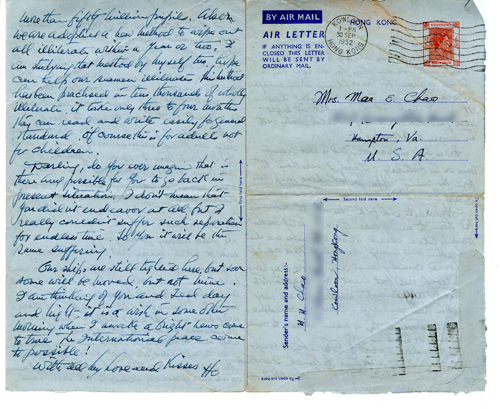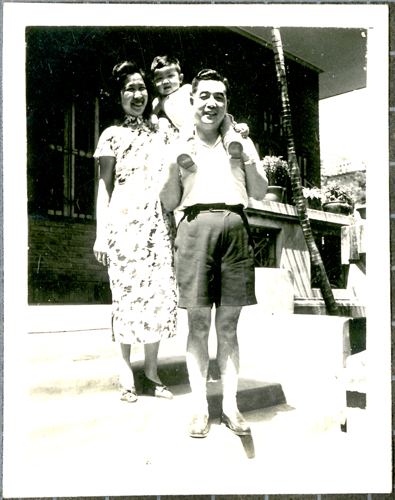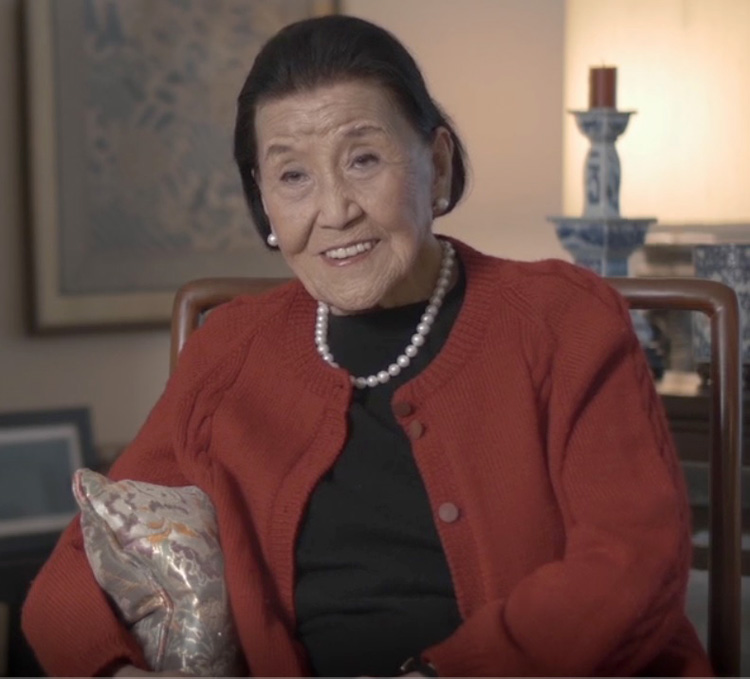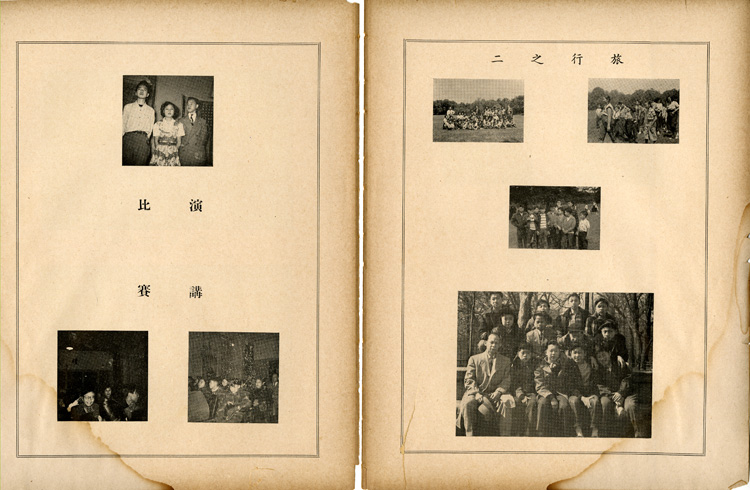
A letter from Ho to Mae, September 26, 1952. Courtesy of Ted Chao, Museum of Chinese in America (MOCA) Collection.
1952年9月26日,学訸写给美的一封信。Ted Chao捐赠,美国华人博物馆(MOCA)馆藏
Mae Chun Eng was born in Norfolk, Virginia in 1918, spent her adolescence in the States, moved to China for a period at age 12, and then returned to the U.S. to finish high school, go to university, and receive her master’s degree in 1946 from Columbia University. While at Columbia, she was an active member in the Chinese Students Association and met Hsio Ho Chao (b. 1913, Zhejiang, China), who showed up to a meeting one day looking for a free meal. The two were married in Shanghai and had a son, Ted, the next year. In 1949, Mae and their son moved to Virginia.
While the couple thought they would reunite swiftly, Ho and Mae were separated for many years. As a female U.S. citizen, Mae was unable to sponsor her husband in the States, and the rapid and uncertain change in China and Ho’s shipping career following the Communist takeover made it difficult for her to return to China. Throughout their separation, Ho and Mae sent letters and photographs back and forth as often as every few days. Son Ted Chao donated a selection of letters handwritten by Ho to Mae from 1951 to 1952. The open tenderness of his words and the depth of his reflections on war stand out in their correspondences. His unwavering desire for their reunion, his pride in their son, and his hatred of the corrupt greed that spawns war are themes throughout.
Ho was later imprisoned in a labor camp in Guangdong and would not escape until 1963, when his old Hong Kong classmates paid for his way out. Ho spent the first three nights of his escape traveling down the Pearl River, hiding among rocks during the day to avoid British guards. While he weighed a healthy 170 pounds the last time Mae saw him, Ho escaped China weighing a mere 100 pounds. Mae and Ho reunited permanently in 1964 when Ted was 17 and lived in Georgia for the next twenty years before settling in New Jersey in 1986.


